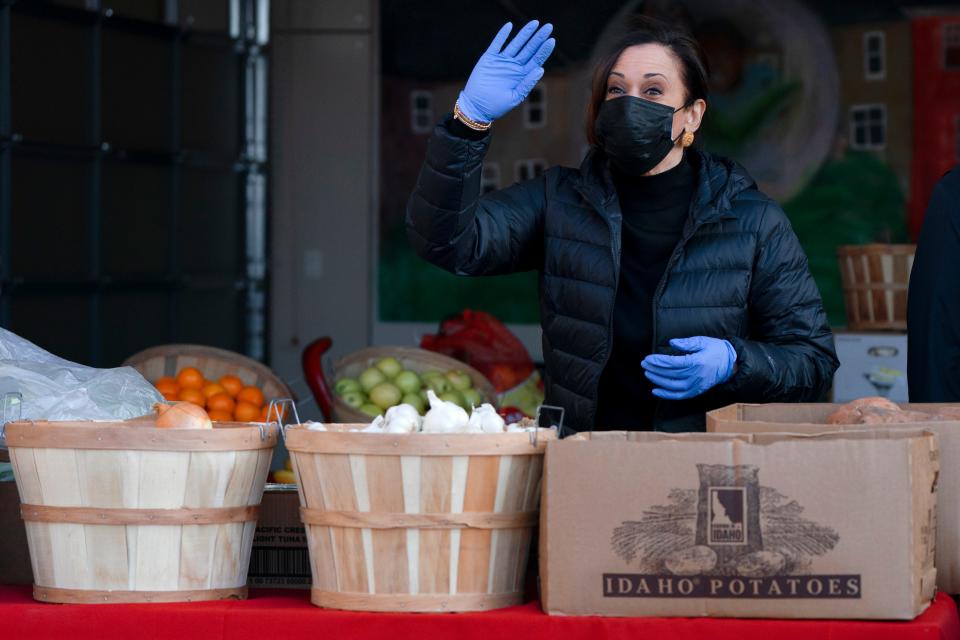How to reunite America: Commit as leaders to serving the civic good
"There’s more that unites us than divides us." Americans have heard this refrain countless times over the years. As the gulf of mistrust between left and right continues to widen and our common threads fray, it raises the question: What exactly is the “more” that unites us?
The violent insurrection at the Capitol this month made stark for people across the country and around the globe: American democracy, and the principles that undergird it— equality, justice, liberty for all; a government of, by, and for the people — the tenets that have held our republic together for nearly two and a half centuries, are neither certain nor guaranteed.
They are fragile and must be defended by every new generation.
It also made clear something we’ve long believed, that the key to preserving, restoring and revitalizing American democracy is through servant leadership. The type of leadership that willingly surrenders the “me” for the “we” and that sees itself as a steward. Leadership that consistently aims to foster civic unity and that never loses sight of its North Star: accountability.
Until now, the aforementioned more was largely built around the stories and myths we told ourselves. That America was the world’s melting pot and the land of opportunity; a country of destiny, seemingly impervious to history or human nature and exempt from the threat of despotism or decline to which others have succumbed. The shining city on a hill.

If the discord of 2020 taught us anything, it’s that these stories mean vastly different things to different people. And, where we go from here will largely depend on our ability to find a renewed understanding of our American identity. Our collective way forward will rely on a new narrative around what it truly means to be an American.
Servant leaders stepped forward
As the mayhem unfolded at the Capitol, servant leaders from both sides of the aisle gave us a glimpse of what that narrative could be. Folks like Rep. Jason Crow, D-Colo., Rep. Elissa Slotkin, D-Mich., and freshman Rep. Peter Meijer, R-Mich., whose instincts were to look beyond their own sense of safety or self-interest.
They shielded colleagues from imminent threats of physical danger, and through their words and actions, defended our government from would-be insurrectionists, demonstrating to the world what it means to serve with courage and integrity.
These are the individuals forging this new narrative. Women and men who once served their communities and country in the military or through national service organizations, entering the political arena and demonstrating that our American identity flourishes from a commitment to putting people and principles first.
It’s because of these individuals and bipartisan organizations like New Politics, which empowers leaders to continue serving in public office, that we’re hopeful for the future of our country.
Each one of us has spent the better part of our careers at the juncture of politics and public service. As educators and thought leaders, social and civic entrepreneurs, we’ve seen firsthand the power of courageous servant leadership and the impact that individuals of virtue and integrity can have when they are dedicated to serving causes greater than themselves.
Having merely once worn the uniform or volunteered to serve, of course, is not on its own indicative of this mindset. As the throngs of former service members among this month’s rioters showed us, including Air Force veteran Ashli Babbit who was fatally shot outside the Speaker’s gallery, a service background does not equal servant leadership. It’s what these leaders learn from their service, the values and sense of history that sets them, and their leadership, apart.
Our democracy is fragile
Our country requires leaders who recognize that what unites us is our shared responsibility as citizens to act as both beneficiaries and guardians of this 244-year-old experiment.
American democracy is fragile. It requires public servants who are committed to the common good.
It requires leaders who see themselves not as members of a tribe, but as parts of a whole.
It is, as intimated by Ben Franklin’s oft-quoted response to whether America would be a republic or a monarchy, in constant need of safeguarding.
A healthy, functioning and revitalized democracy demands from each of us civic nationalism — a communal purpose and identity built on courage, compassion and empathy.
Matthew Dowd is ABC's chief political analyst; Billy Shore is founder and executive chair of Share Our Strength; Alan Khazei is cofounder of City Year; Michelle Nunn is president and CEO of CARE USA; Rosabeth Moss Kanter is the Ernest L. Arbuckle professor of business at Harvard Business School; Elisa Basnight is a member of the New Politics Advisory
You can read diverse opinions from our Board of Contributors and other writers on the Opinion front page, on Twitter @usatodayopinion and in our daily Opinion newsletter. To respond to a column, submit a comment to letters@usatoday.com.
This article originally appeared on USA TODAY: By recommitting to civic service, we can reunite America

 Yahoo Movies
Yahoo Movies 
